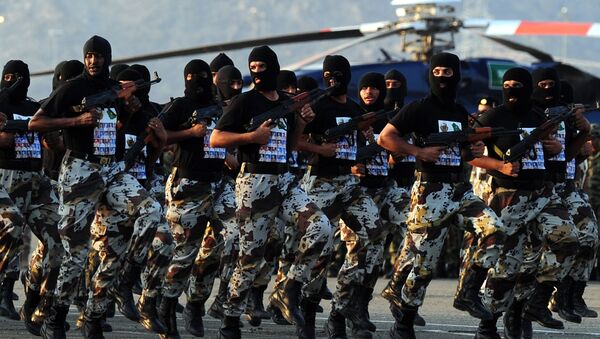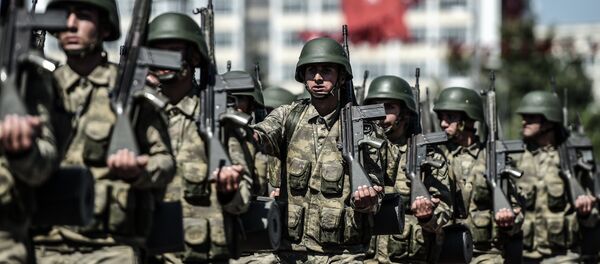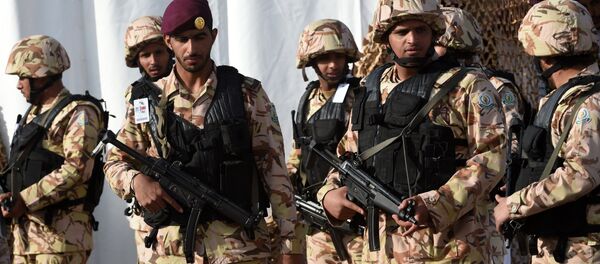On Thursday, the Saudi Embassy in Washington announced that it was prepared to send troops to Syria to take part in ground operations against Daesh, saying that Riyadh would intervene if it were asked by the US-led anti-Daesh coalition to do so.
Saudi Ministry of Defense spokesman: Saudi Arabia ready to send ground troops to Syria to fight Daesh (ISIS) if asked.
— Saudi Embassy (@SaudiEmbassyUSA) 4 февраля 2016
Commenting on the announcement for Saudi-owned television channel Al-Arabiya, Brig Gen. Ahmed Asseri explained that "the Kingdom is ready to participate in any ground operations that the coalition (against Daesh) may agree to carry out in Syria."
Earlier, The Guardian reported, citing unnamed sources, that Riyadh could deploy "thousands of special forces" to Syria, "probably in coordination with Turkey."
If one or both countries were to actually send troops, the Syrian crisis would become impossible to resolve, Vladimir Sazhin, a senior expert at the Russian Academy of Sciences' Institute of Middle Eastern Studies, told Russian news agency RIA Novosti.
Saudi intervention, the analyst suggests, would not only bury the Geneva peace process, but could lead to Syria's partitioning. "It would so confuse the situation that a peaceful resolution to the conflict would become impossible. The current situation seems to suggest, that Syria will be divided into three parts, despite the fact that [none of the major players] – neither America, nor Russia, nor Iran, want this."
Worse yet, the analyst notes, Riyadh's intervention might push Tehran to intervene in the conflict directly. "It is entirely possible that in response to a Saudi move, Iran might take similar steps. And here the threat arises from a direct collision between the two regional powers."
At the same time, the analyst suggests, the Saudi intervention would not have a significant impact on the course of the anti-Daesh operation itself.
"I don't think that the Saudi contingent would have a significant impact on the course of hostilities, because as is well known, the Saudi army is not particularly effective. On the other hand, if Turkish troops intervene as well, this is another matter, because the Turks have always been distinguished by their high military capability."
"It would be a very dubious move, and an extremely destructive one – for Turkey, whose economy is already reeling, and for Saudi Arabia" and its oil-dependent economy.
"If Saudi Arabia and Turkey were to introduce their troops to Syria, they would, in the first place, immediately doom themselves to becoming the epicenter of a large-scale guerrilla and ethno-confessional war."
Comparing Riyadh's supposed plans with Israel's war in Lebanon, where, after introducing troops, Israel was forced to withdraw, "since it did not know how to fight against guerrilla groups," the analyst recalls that "in the ethno-confessional sense, Syria is very reminiscent of Lebanon."
The country features "a large number of various ethnic groups, and fighting them is virtually impossible: [the Saudis] would face huge casualties, would completely destabilize the situation, would waste their budget on a futile war, which as an end result would fizzle out, leading only to regional destabilization and the destabilization of their own economy."
Ultimately, the analyst believes that Riyadh is wary the Pandora's Box they would open by intervening, suggesting that this 'pseudo-announcement' may be an element of information warfare – perhaps as a way to influence the Syria peace talks, rather than an indication of the Saudis' real intentions.
If the Saudis really did intervene, it would result, "first and foremost, in a full-scale regional war," Demidenko concludes.






